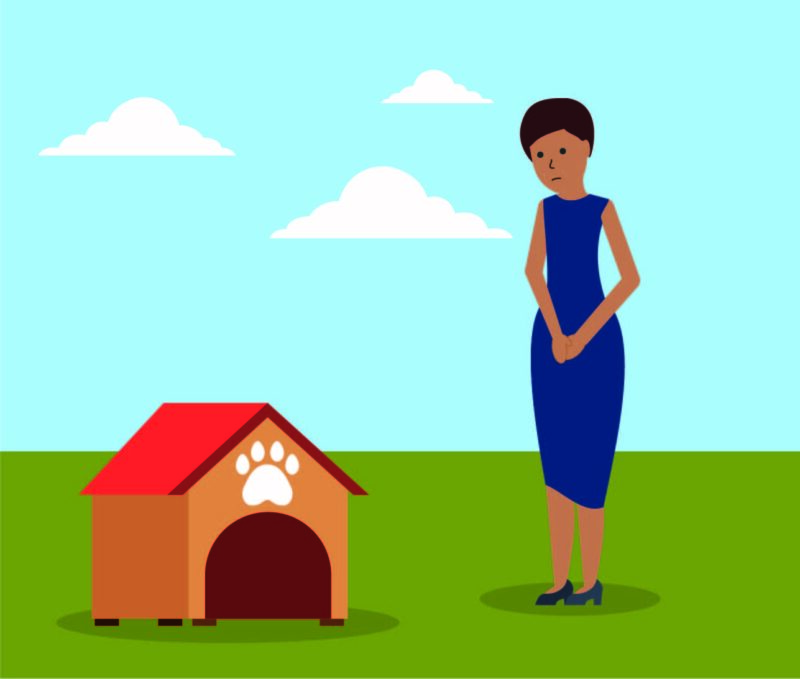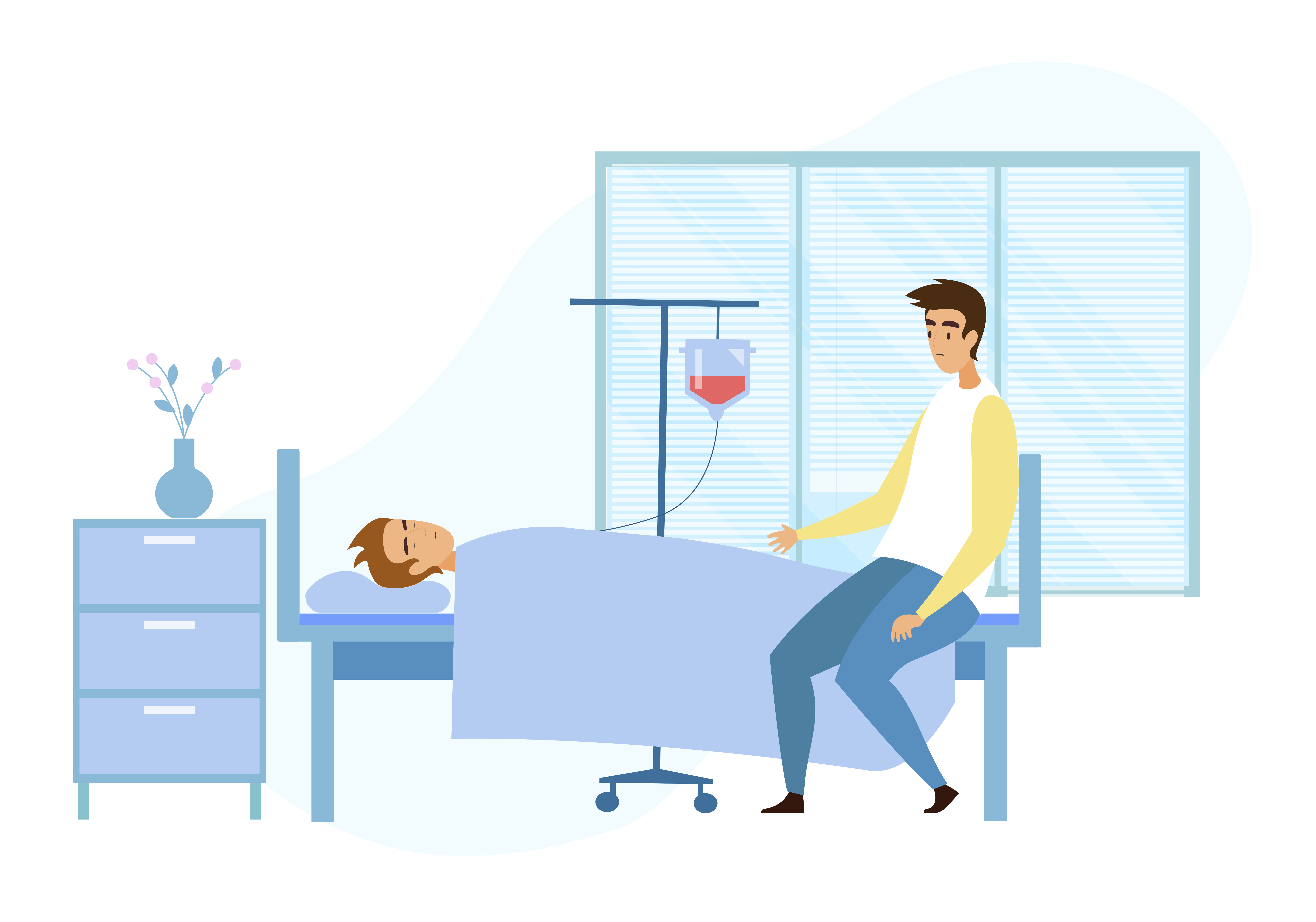Coping with Non-Death Losses
Non-Death Losses
You can feel grief without experiencing a death. Many of life’s major changes can cause you to grieve in ways that are similar to those you experience after someone dies.
Some of the following life changes may require you to adjust to new and unfamiliar situations, which may cause you to grieve:
- Divorce of your parents
- Divorce of you and your spouse
- Moving to a new house, apartment or living situation
- Job loss
- Change in your support person or advocate
- Loss of a relationship, even one that is not a good relationship
- Diagnosis of your own or a loved one’s serious illness
- Loss of a pet or animal companion
- Loss of a special object
- Loss of hobby or passion

Feelings of Grief You May Have
In any non-death loss situation, your feelings of grief are justified. The type of non-death loss you experience can affect your grief response, so different losses can result in different responses.
As with grief related to a death, you can be affected emotionally, cognitively, spiritually, and physically.
- You may experience an emotional response through physical symptoms such as head, body, stomach, neck, and/or shoulder aches. These symptoms can be a sign that you may not be feeling well emotionally.
- You may not be able to identify or explain your emotions.
- You may also experience emotional numbness or experience multiple feelings all at once.
You may feel:
- Shock
- Anger
- Guilt
- Regret
- Sadness
- Anxiety
A full list of possible grief reactions appears in Grief After a Death.

If Your Animal Companion is Missing
It is not unusual for badly injured or very sick animals to leave their homes to find a place to die in nature. This can be especially upsetting and cause you to grieve because you cannot find the pet and do not know exactly what happened.
Sadly, there are times when an animal needs to leave a home because someone in the home decided the pet was a problem.
Not knowing whether an animal companion is missing or has died can make you feel sad or anxious. These are feelings of grief over something that has been lost, which may feel even worse than if you definitely knew the animal had died.
Click here to learn more about grief you may experience if your animal companion is missing or has died.
Examples of Major Life Changes and Suggestions for Coping
Click to learn more:
Divorce of Your Parents
If your parents are divorcing, you may feel an intense grief response. Children of divorcing parents, even adult children, often feel responsible for their parents’ divorce. Divorce is a decision that parents make, and children are not responsible for it. If you are feeling guilty, it is important to remember that it is not your fault.
If you are living with your parents:
- You may need to move to a different home and live with one of your parents. This may mean you don’t see the other parent as often as you do now.
- If your parents are experiencing strong emotions such as sadness or anger, it may be difficult to see them show these feelings.
- You may also feel sad, frustrated, or angry about what life will be like when your parents don’t live together.
- You might feel relieved if your parents didn’t get along while they were together, because your home life may become less stressful.
- Even if you are relieved, you may still worry or feel anxious about how the changes will affect your daily life.
If you are not living with your parents:
- You may have an intense grief response.
- You may feel a sense of loss because the future will look different from what you expected.
- You may worry about how your relationship with one or both parents could change.
Suggestions to help you cope with grief:
- Keep a journal or diary where you can write down your private feelings about the losses.
- Share your feelings with trusted family, friends, or clergy who are available to provide support.
- Join a Facebook or other online support group or forum where you can share your feelings with others having similar experiences.
- If your grief is overwhelming for a long time and gets in the way of your daily activities, consider seeking professional help from a trained counselor.

Divorce of You and Your Spouse
Many marriages end in divorce, but when you are involved, it can feel frightening and lonely. If you are getting a divorce, it is expected to have many reactions:
- You may have an intense grief response.
- Your reactions can be different depending on who asked for the divorce or whether it was a mutual decision.
- You could feel shocked, sad, angry, or relieved.
- You may experience physical or sensory symptoms, regression of skills, or anxiety from the uncertainty of changes that will come.
- Getting divorced means there are a lot of decisions to make, and many things about your life will likely change.
- You may have to think about and make decisions about where to live, who you will live with, how often you see your children (if you have any), how you will split your money and furniture, and a lot of other things.
- Friends and family of your spouse may choose to “side” with him/her after the divorce, leaving you feeling even more alone.
Divorce will likely result in changes to your daily routines. Grief experienced in divorce may be related to the loss of routines more than to the loss of the relationship itself. Thinking about all the changes and making these decisions can make you feel worried, scared, anxious, or stressed. Establishing new daily routines without your spouse and children in it can be distressing. If you will move to a different home, you may even miss things such as your daily commute to work, seeing your neighbors, or visiting a favorite store or restaurant near where you lived.
Suggestions to help you cope with grief:
- Keep a journal or diary where you can write your private feelings about the losses.
- Share your feelings with trusted family, friends, and clergy who are ready to provide support.
- Join a Facebook or other online support group or forum where you can share your feelings with others with similar experiences.
- If your grief is overwhelming for a long time and gets in the way of your daily activities, think about asking for professional help from a trained counselor.

Serious Illness
Grief can occur during your own or a loved one’s serious illness. A serious illness changes the outlook for the future. It may also result in a hospital stay or move to a long-term care facility. The person’s life expectancy might now be limited.
The response to a serious illness is often called . Understanding a Serious Illness provides more information.
Suggestions to help you cope with grief:
- Keep a journal or diary where you can write down your private feelings.
- Think about the happiest memories you have of your loved one.
- Share your memories with family or friends.
- Display framed photos of them or add special photos to your phone or computer screen.
- Share your feelings and questions with trusted family, friends, or clergy who are available to provide support.
- If you like to pray, pray for them.
- Join a Facebook or other online support group or forum where you can share your feelings with others having similar experiences.
- If your grief is overwhelming for a long time and gets in the way of your daily activities, consider seeking professional help from a trained counselor.

Replacement of Your Caregiver or Support Person
If someone who provides support to you leaves because of an illness or a job change, you may experience this is as a non-death loss:
- You may need to move to a new home or someone new may move in with you.
- The new person may have different routines or ways of providing care and you need to adjust to the new ways.
- You may miss the person who is no longer in your life.
These losses can cause you to have grief reactions, as after a person dies. Changes After a Caregiver Dies provides more information.
Suggestions to help you cope with the changes:
- Ask for help in keeping your life the same, as much as possible.
- If you need to move, pack items that bring you comfort.
- Try to find similarities between your new home and your previous home, or between your new support person and your previous support person.
- Keep a journal or diary where you can write down your private feelings about the loss.
- Think about the happiest memories you have of the person who left.
- Share your memories about the person with friends or family.
- Display framed photos of the person or add special photos to your phone or computer screen.
- If you like to pray, pray for the person who left.
